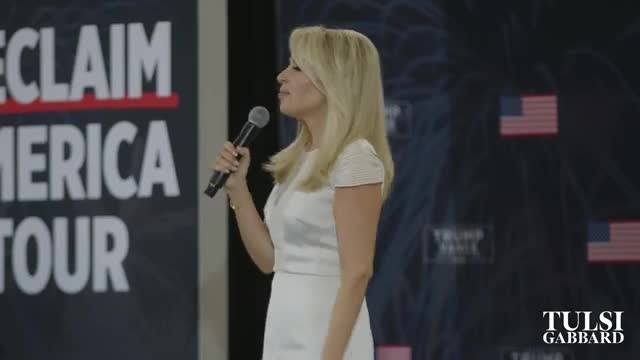Former Democrats rally to rescue Republican Party
October 27, 2024 | Robert F. Kennedy Jr., Presidential Candidates 2024
This article was created by AI summarizing key points discussed. AI makes mistakes, so for full details and context, please refer to the video of the full meeting. Please report any errors so we can fix them. Report an error »

In a recent gathering, former presidential candidates Robert F. Kennedy Jr. and Tulsi Gabbard shared their experiences and motivations for leaving the Democratic Party, emphasizing a perceived shift away from its foundational values. Both speakers highlighted a gradual realization that the party no longer aligned with their beliefs, particularly regarding free speech and anti-war principles.
Kennedy, whose family has deep roots in the Democratic Party, recounted a legacy of advocacy for the working class and the voiceless. He expressed disappointment in the party's current direction, which he described as increasingly aligned with militarism and a departure from the ideals of freedom and inclusivity that once defined it. He reflected on his family's history, noting that his grandfather and other relatives were welcomed by the party during their immigration to the United States, a stark contrast to what he perceives today.
Gabbard echoed these sentiments, detailing her own journey from a two-decade affiliation with the Democrats to her current stance. She criticized the party for abandoning its commitment to free speech and for embracing a \"warmongering\" agenda, particularly under the leadership of figures like Kamala Harris. Gabbard's departure was marked by her opposition to military interventions, which she claims led to political retaliation from party leaders.
Both speakers called for a return to the party's original values, advocating for a political landscape that prioritizes constitutional rights and the voices of everyday Americans. Their remarks resonate with a growing sentiment among some voters who feel disillusioned with the current political climate, suggesting a potential shift in party dynamics as they seek to redefine their political identities.
Kennedy, whose family has deep roots in the Democratic Party, recounted a legacy of advocacy for the working class and the voiceless. He expressed disappointment in the party's current direction, which he described as increasingly aligned with militarism and a departure from the ideals of freedom and inclusivity that once defined it. He reflected on his family's history, noting that his grandfather and other relatives were welcomed by the party during their immigration to the United States, a stark contrast to what he perceives today.
Gabbard echoed these sentiments, detailing her own journey from a two-decade affiliation with the Democrats to her current stance. She criticized the party for abandoning its commitment to free speech and for embracing a \"warmongering\" agenda, particularly under the leadership of figures like Kamala Harris. Gabbard's departure was marked by her opposition to military interventions, which she claims led to political retaliation from party leaders.
Both speakers called for a return to the party's original values, advocating for a political landscape that prioritizes constitutional rights and the voices of everyday Americans. Their remarks resonate with a growing sentiment among some voters who feel disillusioned with the current political climate, suggesting a potential shift in party dynamics as they seek to redefine their political identities.
View full meeting
This article is based on a recent meeting—watch the full video and explore the complete transcript for deeper insights into the discussion.
View full meeting